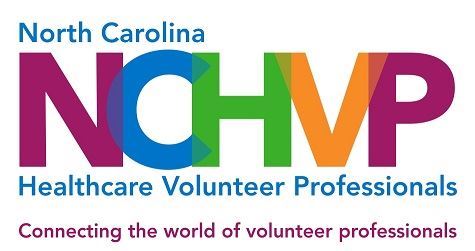Is this what you're asking about? If so, this from the DOL:
Fact Sheet #14A: Non-Profit Organizations and the Fair Labor Standards Act (FLSA)
(August 2015) (PDF)
This fact sheet provides general information about how the FLSA applies to non-profit organizations. The FLSA is the Federal law which sets minimum wage, overtime, recordkeeping, and child labor standards. There are two ways in which an employee can be covered by the law and therefore entitled to its protections: "enterprise coverage" and "individual coverage."
Enterprise Coverage
The FLSA generally applies to (“covers”) employees employed by businesses with annual gross volume of sales made or business done of at least $500,000. Non-profit charitable organizations are not covered enterprises under the FLSA unless they engage in ordinary commercial activities that result in sales made or business done, such as operating a gift shop or providing veterinary services for a fee.
In determining whether or not a non-profit organization is a covered enterprise, the Wage and Hour Division will consider only activities performed for a business purpose. Charitable, religious, educational, or similar activities of organizations operated on a non-profit basis where such activities are not in substantial competition with other businesses do not result in the organizations being considered covered enterprises. For a non-profit organization, enterprise coverage applies only to the activities performed for a business purpose; it does not extend to the organization’s charitable activities.
Income from contributions, membership fees, dues (except any part which represents the value of a benefit, other than of token value, received by the payer), and donations (cash or non-cash), used in the furtherance of charitable activities, are not considered in determining whether an organization has met the dollar threshold required for FLSA enterprise coverage. See Fact Sheet 14: Coverage Under the Fair Labor Standards Act (FLSA) for additional information about enterprise coverage.
For example, a non-profit animal shelter provides free veterinary care, adoption services, and shelter for homeless animals (charitable activities). In addition, the shelter provides veterinary care for a fee to customers (commercial activities). If the revenue generated from the organization’s commercial activities is at least $500,000 in a year, the employees engaged in the commercial activities are protected by the FLSA on an enterprise basis. Employees of the organization’s charitable activities are not covered on an enterprise basis since those activities do not have a business purpose.
Individual Coverage
Employees of employers that are not covered by the FLSA on an enterprise basis may still be entitled to its protections if they are individually engaged in interstate commerce or in the production of goods for interstate commerce, or in any closely-related process or occupation directly essential to such production.
Examples of activities that may result in individual employee coverage include making/receiving interstate telephone calls, shipping materials to another state, and transporting persons or property to another state. The Wage and Hour Division, however, will not assert that an employee who on isolated occasions spends an insubstantial amount of time performing individually covered work is individually covered by the FLSA. See Fact Sheet 14: Coverage Under the Fair Labor Standards Act (FLSA) for additional information about indivudual coverage.
Volunteers
The FLSA recognizes the generosity and public benefits of volunteering and allows individuals to freely volunteer in many circumstances for charitable and public purposes. Individuals may volunteer time to religious, charitable, civic, humanitarian, or similar non-profit organizations as a public service and not be covered by the FLSA. Individuals generally may not, however, volunteer in commercial activities run by a non-profit organization such as a gift shop. A volunteer generally will not be considered an employee for FLSA purposes if the individual volunteers freely for public service, religious or humanitarian objectives, and without contemplation or receipt of compensation. Typically, such volunteers serve on a part-time basis and do not displace regular employed workers or perform work that would otherwise be performed by regular employees. In addition, paid employees of a non-profit organization cannot volunteer to provide the same type of services to their non-profit organization that they are employed to provide.
Where to Obtain Additional Information
For additional information, visit our Wage and Hour Division Website: http://www.wagehour.dol.gov and/or call our toll-free information and helpline, available 8 a.m. to 5 p.m. in your time zone, 1-866-4USWAGE (1-866-487-9243).
This publication is for general information and is not to be considered in the same light as official statements of position contained in the regulations.
For Workers
For Employers
For States
How to File a Complaint
News Room
About WHD
Contact Us
Email Alerts
Freedom of Information Act | Privacy & Security Statement | Disclaimers | Important Website Notices | Plug-Ins Used on DOL.gov
U.S. Department of Labor | Frances Perkins Building, 200 Constitution Ave NW, Washington, DC 20210
Telephone: 1-866-4-USWAGE (1-866-487-9243) | TTY | Contact Us
